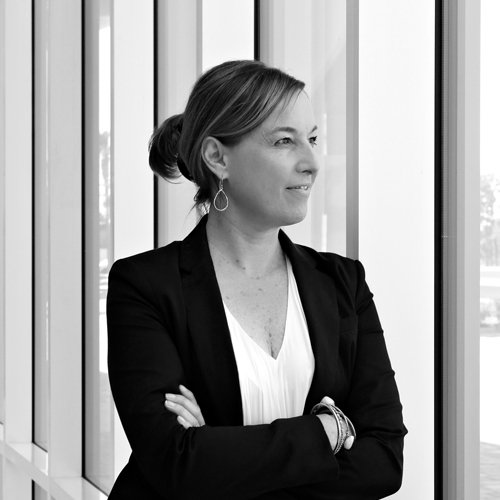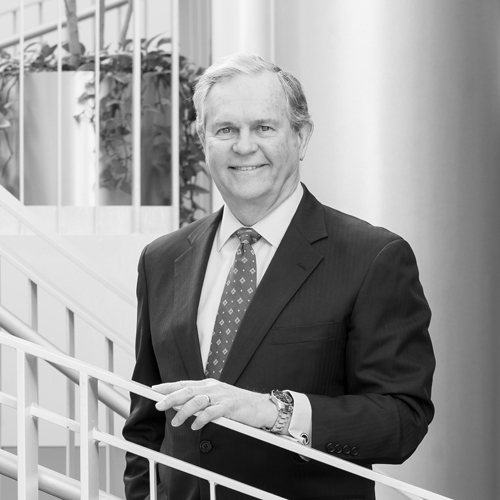Paul Chadha’s day began before 6 a.m. with client calls and a run to the airport. He spent a few hours in Accenture’s office in the morning, then an afternoon at Northwestern University crafting a syllabus and writing letters of recommendation for his law students.
His four-year-old daughter wanted breakfast for dinner, so he swung by the grocery store for eggs, toast, and sausage that would give them the fuel to continue her bike-riding lessons that evening. It was a long day, not unlike many others in his work week, where he spent most of his time on work and his daughter in Chicago while keeping in the back of his mind the many children in Awassa, Ethiopia, that also depend on him.
Chadha’s life is a testament to the importance of balance. He specializes in corporate law as part of the legal team at Accenture, he teaches negotiation and international business law at Northwestern University, and he prioritizes spending time with his daughter at night. On top of all this, Chadha has been the president of the Awassa Children’s Project, an orphanage and school in Ethiopia, and was one of the founding board members of the organization 12 years ago. He currently serves as chairman of the board and assists with volunteer coordination and grant writing.
The Awassa project began more than a decade ago as a theater program focused on AIDS education. Chadha’s friend asked him to work as the group’s pro bono attorney, and Chadha declined initially. When the group’s board met in Chicago, his friend dragged him along, and within a few months, Chadha was on a flight to Ethiopia. Since then, Chadha has spent months overseas, and the project’s scope, goal, and offerings have grown tremendously under his leadership. Today, it is a center with multiple buildings housing approximately 100 orphaned children. It operates One Love Theatre and a vocational training center, and it is part of a movement that promotes sustainable living and education throughout Ethiopia.
All of those things are details focused on one core value of Chadha’s work, and that is effective leadership. Through his long career that has included his work in Awassa and the pro bono representation of battered women, small theaters, and people in political asylum, Chadha has found that there is one important trait for any leader, group, or nation. “Without your heart, nothing happens,” he says. “Without that spark, without one person standing forward saying, ‘Enough’s enough,’ or ‘We have to do this,’ nothing happens.”
That’s what leadership is—one moment of decision, repeated over and over, that drives people in their careers, their home lives, and, sometimes, all the way to Ethiopia. “It’s that spark, that inertia,” he says, pausing to consider the thought for another moment. “Where does it go? That’s the universal question—for good or for evil. You see that spark getting used for all kinds of things in the world today.”
Chadha’s spark struck early, and it wouldn’t have caught in the same way had he been anywhere but Chicago. He graduated from Northwestern Law in 2002. The following February the city made national headlines after the E2 nightclub stampede, where club security used pepper spray to break up a fight. The spray induced sickness in many patrons and caused others to assume it was a terrorist attack using poisonous gas. People panicked and started a frantic stampede to leave the building, resulting in 21 deaths and 50 injuries. After that tragedy, the city did thorough sweeps of theaters and similar entertainment venues, and Chadha helped small theaters get proper licensing. He became friends with an actor working at Chicago Shakespeare Theater who told him about a small AIDS education theater project 7,700 miles away that would grow into the Awassa project. “[In America], we learn so much of what we know about the world through TV,” Chadha says. “Theater has that power. We want to fight the AIDS epidemic, and the best way to do that is through education. Theater is education.”
Nothing that Chadha has done at Awassa was quite what he expected. Every year, there’s a deadline to meet financial obligations, and seeking monetary support takes up a hefty chunk of his time—he’s always skidding to home plate at the last minute to make it through for the next year. That kind of pressure can wear someone down, and he isn’t shy in admitting that there were years he wanted to quit. But he’s spent time in Ethiopia, and he’s spent time with the children Awassa serves. He’s seen what his work can do when he reflects on people like Jibril, one of two siblings who were among the first to come to the center. Jibril’s medical care and education was supported by Awassa, and last summer he graduated from Jimma University with a degree in civil engineering. If Chadha pulled out of Awassa now, kids like Jibril would still need him—which is why he’s not going anywhere.
Recently, the center has accomplished much more than anyone initially planned. They’ve bought houses, hired house mothers, taken the center off of Ethiopia’s power grid, replaced it with their own, and brought Wi-Fi and computers to their children. Technology is serving as a great equalizer that levels the playing field for children from different backgrounds, HIV/AIDS statuses, and genders. It’s become a snowball effect with the center growing faster and bigger each year. “It’s the coolest thing I’ve ever done in my life, if that makes sense,” he says. “I did not expect this. We didn’t know, from the beginning, everything we would be able to accomplish.”
Chadha has seen enough, in his travels abroad and his work back home, to be tired. He takes moments each night to reflect on that, and he isn’t hesitant to admit that weariness. In 2011, Awassa housed more than 80 children. That August, UNICEF and the Ethiopian government brought 50 more to be housed there though Awassa only had room for 30. They were all children who had been mistreated at other orphanages. “Kids all over the world need help,” Chadha says. “It’s a matter of degrees. It’s worse in some areas more than others, and it’s bad there.”
Chadha sees the struggles, but they’ve allowed him to find a great amount of kindness in the world, from securing funds to help this small project 7,000 miles away and from spending time at the shelter. “There’s unbelievable kindness on this planet,” he says. That’s what keeps Chadha going through his work at Awassa, with his clients at Accenture, with his students at Northwestern, and with his daughter in the evenings. Knowing that exists keeps his spark burning and makes the burden of leadership worth it. As long as he has that, he’s not going to quit. There’s so much more to be done.

